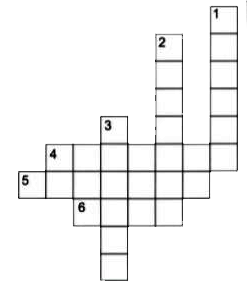Immunodeficiency in the host, caused by HIV is due to
Depletion of helper T cells
Depletion of RBC
Increase of helper T cells
Depletion of platelets
The correct Answer is:A
Step-by-Step Solution:
1. Understanding HIV: Human Immunodeficiency Virus (HIV) is a virus that specifically targets the immune system of the host, leading to immunodeficiency.
2. Target Cells of HIV: HIV primarily infects T helper cells, also known as CD4+ T cells. These cells are crucial for the immune response as they help activate other immune cells.
3. Mechanism of Infection: Once HIV enters the body, it binds to the CD4+ molecules on the surface of T helper cells. This binding allows the virus to enter the cells.
4. Replication of HIV: After entering the T helper cells, HIV replicates and produces more copies of the virus. This process eventually leads to the death of the infected T helper cells.
5. Consequences of T Helper Cell Depletion: As HIV continues to infect and kill T helper cells, the overall number of these cells decreases significantly. This depletion impairs the immune system's ability to respond to infections, leading to immunodeficiency.
6. Conclusion: Given the options provided, the correct answer to the question is Option A: depletion of T helper cells. This depletion is the primary reason for immunodeficiency in hosts infected with HIV.
Topper's Solved these Questions
- HUMAN HEALTH DISEASEBook:AAKASH SERIESChapter:HUMAN HEALTH DISEASEExercise:EXERCISE - I(GRAFT REJECTION)
Explore 5 Videos
- HUMAN HEALTH DISEASEBook:AAKASH SERIESChapter:HUMAN HEALTH DISEASEExercise:EXERCISE - I(CANCER)
Explore 10 Videos
- HUMAN HEALTH DISEASEBook:AAKASH SERIESChapter:HUMAN HEALTH DISEASEExercise:EXERCISE - I(AUTO IMMUNITY)
Explore 5 Videos
- HISTOLOGY AND ANATOMY OF FLOWERING PLANTSBook:AAKASH SERIESChapter:HISTOLOGY AND ANATOMY OF FLOWERING PLANTSExercise:EXERCISE - III (PREVIOUS AIPMT/NEET QUESTIONS)
Explore 24 Videos
- MICROBES IN HUMAN WELFARE Book:AAKASH SERIESChapter:MICROBES IN HUMAN WELFARE Exercise:EXERCISE-III (Previous AIPMT/NEET Questions)
Explore 25 Videos
Similar Questions
Immunodeficiency can result from
View SolutionHIV is a type of
View SolutionDOWN
1. A disease caused due to the bite of a mad dog. (6)
(2) Kwashiorkor and marasmus are caused due to the deficiency of this food component.
3. A disease causing bleeding gums
ACROSS
4. A disease due to deficiency of vitamin D
5. Diabetes is caused due to deficiency of the hormone.
6.The deficiency of this mineral causes anaemia.

View SolutionPink eye is caused due to
View SolutionRickets is caused due to :
View SolutionAIDS is caused by Human Immunodeficiency Virus (HIV). HIV can get transmitted through
View SolutionTrace the events that occur in human body to cause immunodeficiency when HIV gains entry into the body.
View SolutionImmunodeficiency makes a person highly susceptible to infection. It is caused by
View SolutionName the cells HIV (Human Immunodeficiency Virus) gain entry into after infecting the human body. Explain the events that occur in these cells.
View SolutionAssertion : SCID is a primary immunodeficiency.
Reason : It is a serious congenital immunodeficiency.
View Solution